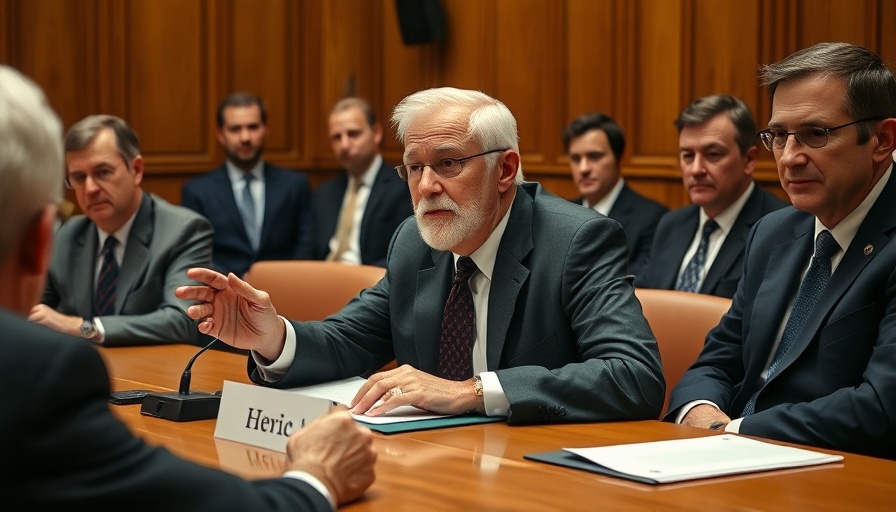
Atkins Faces Scrutiny on SEC Tenure During Confirmation Hearing
U.S. Senator Elizabeth Warren did not hold back during the Senate Banking Committee confirmation hearing for Paul Atkins, President Trump's nominee for the chair of the Securities and Exchange Commission (SEC). Atkins, who previously served on the SEC from 2002 to 2008, was heavily questioned about his past performance and the implications of his current financial interests.
Challenges of Regulation and Mismanagement in the Financial Sector
During the hearing, concerns were raised about Atkins's statements made as SEC commissioner prior to the 2008 financial crisis. Warren cited his previous remarks, including a defense of deregulation at times when more cautious financial oversight was increasingly called for. When asked if he regretted those statements, Atkins maintained his stance that the problem lay with "misregulation," asserting that he had not erred in his advocacy for deregulation.
This exchange underscores a continuing debate within the financial regulation community: whether the challenge is too much or too little regulation. Academic and industry leaders frequently highlight that the effectiveness of regulation should be balanced against the operational realities of financial firms, echoing Atkins's point about the language barriers between regulators and industry professionals.
The Direct Impact of Financial Interests
Atkins's role as CEO of Patomak Capital Partners, a firm serving a variety of financial clients regulated by the SEC, adds a layer of complexity to his nomination. Senators raised concerns about potential conflicts of interest enduring from his substantial financial stakes in the firm. With his personal wealth reportedly exceeding $327 million, the implications of such ties could pose critical governance issues, particularly should they be perceived as influencing regulatory decisions.
Elevating the Discussion: The Role of SEC Regulation
Atkins emphasized the need for regulation that is "smart, effective, and appropriately tailored." His comments reflect a shared perspective among some financial advisors who argue that regulations must evolve alongside the industry’s innovations and complexities. Yet, Warren's robust inquiry keeps the potential for conflicts front and center, questioning whether Atkins can effectively oversee an agency designed to protect investors while maintaining business ties with those it regulates.
Moving Forward: What Financial Professionals Should Consider
The outcome of Atkins’s confirmation carries substantial implications for financial planning professionals. His appointment could shape the future landscape of financial regulations, impacting everything from compliance protocols to investment strategies. As advocates for transparent practices, wealth advisers and other financial professionals would do well to monitor how leadership changes influence legislative direction. The evolving dialogue around regulatory responsibility and industry proximity will be critical as advisors engage with their clients on financial landscapes fraught with uncertainty.
 Add Row
Add Row  Add
Add 




 Add Row
Add Row  Add
Add 

Write A Comment